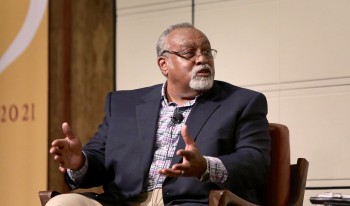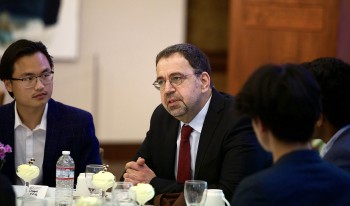April 14, 2022
In a Los Angeles Times opinion piece, Prof. Minxin Pei explored the costs of deglobalization for China in a world divided by Putin’s war: reduced access to major Western markets, loss of access to the technologies it needs to build a knowledge economy, and the loss of efficiency gains from dynamic competition. “Although the coming deglobalization process will leave everyone worse off, China stands to lose the most,” he said.


